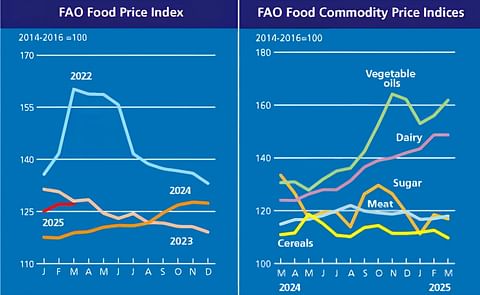Logo of the Kenya Agricultural Research Institute (KARI).
KARI develops potato varieties suitable for chips manufacturing in Kenya

The Kenya Agricultural Research Institute (Kari) is testing new potato varieties ahead of a planned release next April for mid- and high-altitude regions.
The release is expected to raise prospects for manufacturers. Kari says they have been working in tandem with crisp-makers to “give us their standards.”
Sherekea, Purple Gold and Kenya Mpya are disease-resistant, high-yielding and tolerant to viruses.
Sherekea is the highest yielding variety, capable of producing between 40 to 50 tonnes that can be harvested 100 to 120 days after planting. “This is going to benefit farmers the most,” said John Onditi, a breeding specialist at Kari’s Tigoni branch, where the breeds were developed.
The Purple Gold can yield 25 to 35 tonnes per hectare in mid-altitude areas, but thrives in high altitude where yields can be from 35 to 45 tonnes per hectare. It takes 120 to 130 days to be ready. The tubers are longer, said Mr Onditi.
The Kenya Mpya variety is suitable for mid- and high-altitude and can yield 35 to 45 tonnes a hectare in 90 days;it can be harvested while the plant is still green. “Farmers prefer such breeds especially for food,” said Mr Onditi. “It’s not necessary to wait for 120 days.”
Kenya Mpya also has the shortest dormancy period of one to two months until shoots start sprouting.
The release of the breeds has been driven by changing market demand from potato traders and consumers.
The breeds have better post-harvest characteristics and don’t begin rotting if the skin is bruised during handling. The breeds will also expand the options for growing potatoes for Kenyan crisp manufacturers.
Crisp makers such as Deepa Industries need medium-sized potatoes with shallow eyes, as deep eyes mean the potato is cut deeply when peeling resulting in wastage.
The three new breeds are all suitable for crisp making, and the Purple Gold is ideal. This has been partly because the research agency has been working with both Deepa Industries and the other crisps manufacturer Njoro Canners to understand the kind of potatoes the industry requires. “They give us their standards,” said Mr Onditi.
Still, another key challenge lies in getting the new potato breeds out to farmers.









